HOLLYWOOD MEMORIES is designed as a cross-generational and cross-cultural project. Our team at Leibniz University Hannover continues to grow, as there are a total of four sub-projects dealing with memories of Hollywood movies in Germany, the USA, Mexico, and China. All members of the HOLLYWOOD MEMORIES team are dedicated to the research on Hollywood movies, memories, and generations. With this website we would like to inform about our project and motivate as many people as possible to participate in our research.

About us
Our research team
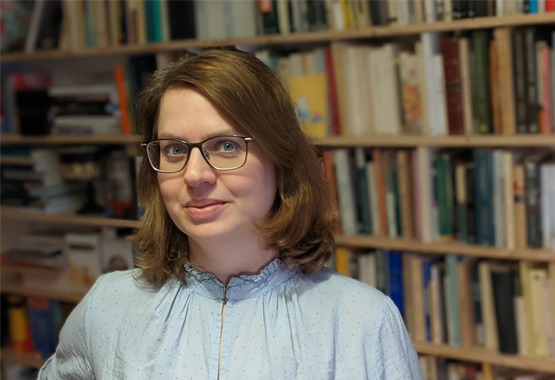
Prof. Dr. Kathleen Loock
Project director
Kathleen Loock
Kathleen Loock is Professor of American Studies and Media Studies at the English Department of Leibniz University Hannover. Her research focuses on U.S. memory culture and various forms of cultural repetition — from monuments and holidays to remakes, sequels, and reboots, as well as seriality in film and television.
Role in the project
Kathleen is the director of the HOLLYWOOD MEMORIES project and is responsible for the research design. She also conducts the USA sub-project and is concerned with the overarching question of whether Hollywood movies contribute to the construction of global movie generations.
This is what Kathleen says about one of her favorite movies
There are two movies that I can‘t stop watching, if I happen to come across them on television: DIRTY DANCING and PRETTY WOMAN. I just love the music, the actors, and the story of both films. I don’t know how many times I’ve watched these movies by now, but I remember that I first came across PRETTY WOMAN in an open-air cinema in the early 1990s. I was maybe 11 or 12 years old at the time, and I was spending my summer vacation with my family in the Czech Republic, in a small village near Ústí nad Labem. It was one of our first vacations abroad after the fall of the Berlin Wall and the first one where we traveled with our own new car (a used Trabbi). One evening I went to the open-air cinema with my older sister and two Czech girls we had made friends with. Lada became my pen pal and we wrote to each other in English for several years before eventually losing touch. The movie was shown in English, with Czech subtitles. I probably didn‘t understand much of the dialogue at the time — but I certainly understood what PRETTY WOMAN was about and I simply enjoyed watching the film on the screen in the warm summer night, immersing myself in the romantic story to the sounds of Roy Orbison and Roxette.
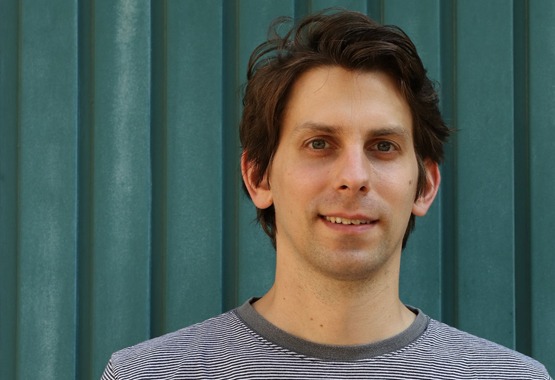
Stefan Dierkes, M.A.
PhD Student
Stefan Dierkes
Stefan Dierkes is a research assistant in the HOLLYWOOD MEMORIES project. He received his Master’s degree in Literature and Media Practice and Anglophone Studies from the University of Essen and is now pursuing his PhD in American Studies at the English Department of Leibniz Universität Hannover as part of the project.
Role in the project
Stefan is responsible for the implementation of the GERMANY sub-project and manages the project’s social media platforms on Twitter, Facebook and Instagram.
This is what Stefan says about one of his favorite movies
Since the only movie theater in the rural area I grew up in often played films that failed to interest me, it was mainly television – and TV guides – that shaped my taste in movies during my teenage years. Since the most interesting movies were relegated to nighttime programming, I recorded many movies with the VCR back then.
That changed when we got a new TV and the old set was discarded to my room, which allowed me to watch movies late into the night at minimum volume, for fear of waking my parents. Above all, I remember watching LOST IN TRANSLATION for the first time and being thrilled because the movie was so different from what I had seen before. I especially remember the last scene where Bob whispers something in Charlotte’s ear. Because the TV was turned down so low, I didn’t hear what he said and was annoyed by it because I was sure it would have explained the whole movie to me.
Only much later did I find out that these last sentences were inaudible on purpose. At that time, the scene, including the soundtrack, amazed me and is still for me one of the best examples of the magic of movies.
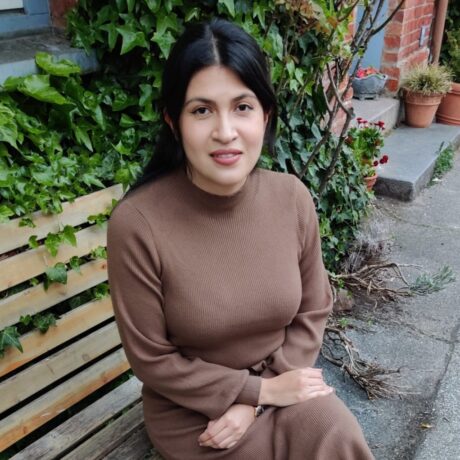
Alejandra Bulla, M.A.
PhD Student
Alejandra Bulla
Alejandra Bulla is a research assistant in the HOLLYWOOD MEMORIES project. She has a Master’s degree in American Studies from the University of Erlangen and a bachelor’s degree as English teacher from the Universidad Francisco José de Caldas in Bogota, Colombia. She is currently pursuing her PhD at the English Department of Leibniz Universität Hannover as part of the project.
Role in the project
Alejandra is responsible for the Mexico sub-project and helps managing the project’s social media platforms on Twitter, Facebook and Instagram.
This is what Alejandra says about one of her favorite movies
One of my favorite movies of all time is MULAN. When I was little, my parents bought a VCR, and by then we did not have cable TV, so to entertain ourselves, together with my two sisters, we used to watch the movies we had at home. I remember we did not own many, and the two I remember the most are MULAN and GODZILLA, and as a child I was more enticed by cartoons rather than monsters, which lead us to watching and rewatching that movie countlessly. To this day, that is one of my favorite animated movies and I consider it a comfort movie. Back then I am sure I was not aware of how significant that movie was for young girls, who were used to seeing male character as the heroes in movies, especially in Disney and its princess tales. With this movie there is a shift in the romantic approach these movies used to have, as the plot of the movie does not revolve around it, but it also defies this concept of romance and marriage since the beginning, allowing a female character to play a leading role and to have her own agenda to fulfill.

Yining Zhang, M.A.
PhD Student
Yining Zhang
Yining Zhang is a research assistant in the HOLLYWOOD MEMORIES project. She has a Master’s degree in English Language and Literature and a Bachelor’s degree in from Nanjing University, China. She is currently pursuing her PhD at the English Department of Leibniz Universität Hannover as part of the project.
Role in the project
Yining is responsible for the Chinese sub-project and manages the project’s social media platform on WeChat.
This is what Yining says about her most memorable movie experience:
My viewing experience of the HARRY POTTER franchise played a major role in my formulative years and witnessed the technological evolvement during that time. I was about 7 years old when I first watched HARRY POTTER AND THE PHILOSOPHER’S STONE on my family’s newly-bought DVD player. I watched the movie so many times that the magic seemed to have rubbed off on my lived experience. I also watched the second and third installments on skipping and pixelating DVD disks highly suspicious of piracy. I watched the later installments on the computer, and was surprised to find how the characters had grown up and changed, without realizing that I had grown up and changed with them. When I was in middle school, I watched the last installment with my mom in the cinema, which had started to catch on in my hometown. The release of the last installment raised such a craze in our school at that time that spells of “Avada Kedavra” and “Expecto Patronum” resounded in the hallways of the teaching buildings during class breaks. Until now, I can still engage in an indefinite conversation if anyone brings up the topic of Harry Potter, and we are very likely to become friends after the conversation.
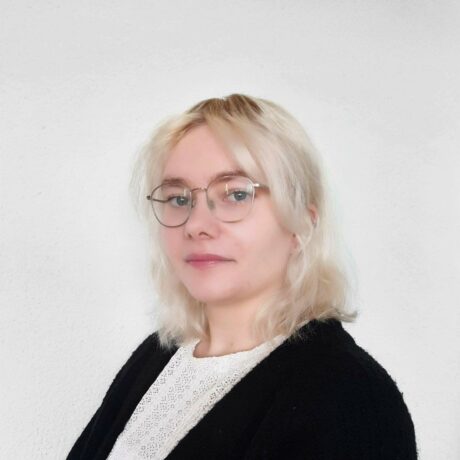
Tina Pahnke, M.A.
PhD Student
Tina Pahnke
Tina Pahnke is a research assistant in the HOLLYWOOD MEMORIES project. She holds a Bachelor‘s degree in the interdisciplinary bachelor with English as her major and Art as her minor from the University Hildesheim and a Master’s degree in North American Studies from Leibniz University Hannover. She is now pursuing her PhD in American Studies at the English Department of Leibniz University Hannover as part of the project.
Role in the project
As a student assistant, Tina assists the work of Prof. Dr. Kathleen Loock. She works mainly on the transcriptions of interviews that are part of the Germany based part of the project.
This is what Tina says about one of her movie experiences:
My parents used to record a lot of movies on VHS, but one film that my sister and I used to watch all the time was THE LAST UNICORN. The quality of the recording was horrible and the advertisement was not cut out, so we had to always skip through them (I can barely imagine the film without those ad breaks anymore). Nevertheless, this movie was and still is one of the most beautiful ones I ever watched. As a child I was fascinated by the story and by the fact that films were able to ignite so much emotion in me. Until this day, that movie is one of my all time favorites. Later, we added CHARLIE’S ANGELS to our DVD repertoire, this time without ad breaks. However, the DVD had a jump in the second part, and the film always went out for a few seconds at a specific part before it continued. When I watch the movie today, I always expect it to have that jump, even if I watch it on television.

Larissa Díaz
Student Assistant
Larissa Díaz
Larissa Díaz is a student research assistant in the HOLLYWOOD MEMORIES project. She is currently pursuing a Bachelor’s degree in Life Science at Leibniz Universität Hannover.
Role in the project
As a student assistant, Larissa assists the work of Prof. Dr. Kathleen Loock. She is mainly responsible for conducting research and transcribing surveys conducted in Mexico.
This is what Larissa says about one of her movie experiences:
I grew up in northern Mexico, a region where the Day of the Dead is not celebrated with the same intensity as in the southern part of the country. Although this tradition was not strongly believed in my community, during my childhood and adolescence, school was a place where we were taught about the meaning of the Day of the Dead and what an altar represents. The stories and legends surrounding this celebration were a part of my childhood, fueling my imagination and understanding of our cultural roots.
When the movie COCO was released, it was an incredible experience for me. Seeing on the big screen everything I had been told as a child, so beautifully depicted in an animated film, was profoundly moving. Despite being a Disney movie, the effort and dedication put into this project are evident. The representation of the traditional Mexican family, the religious and cultural beliefs that vary from one region to another—whether in the north, south, or the central region—are aspects captured with great authenticity.
I love how the movie emphasizes the importance of music and how it addresses issues such as generational problems and traumas passed down from one generation to the next, something very common in Mexico. But what I adore the most is what the character of Miguel represents. His courage to face his reality and pursue his dreams despite the adversities, especially those imposed by his own family, is a reality that many in our country can relate to.
Miguel represents me in many ways. Like him, I grew up with deeply rooted family values, but I also share that need to listen to my heart and pursue my dreams, even if it means challenging what I have been taught. Breaking patterns has become one of my favorite pastimes, and in that sense, Miguel and I share the same struggle.

Yuhan Lin
Student Assistant
Yuhan Lin
Yuhan Lin is a research assistant in the HOLLYWOOD MEMORIES project. He has a Master’s degrees in Electrical Engineering and Information Technology from the Leibniz University of Hannover, he finished his Bachelor degrees in Zhengzhou University, China. He is currently pursuing his second Master’s degrees in Computer Engineering at the Leibniz University. He is interested in research in the fields of machine learning and fronted development, as a part of his master’s thesis extension.
Role in the project
As a student assistant, Yuhan assists the work of Prof. Dr. Kathleen Loock. His work is mainly focused on the transcription of the interviews and he provides the subtitles of the audio and video files for the project, while also processing the chinese version of the interview files to improve the efficiency of the work.
This is what Yuhan says about one of his movie experiences:
When I was a child, there were no cinemas in my hometown. In 2010, when AVATAR became a global sensation, the local arts center decided to screen the movie. My mom’s workplace gave us a few “movie tickets.” I remember that day vividly—the crowd was bustling, and everyone was filled with curiosity. I can still clearly recall the scene of a large screen showing the light blue Windows background as the staff slowly clicked on the Avatar.mp4 file on the desktop. Over a decade later, AVATAR is being re-released globally, the world and me myself have changed dramatically. In my hometown, many new cinemas have opened and closed over the years, people’s curiosity about Hollywood movies has gradually turned into a sense of familiarity, and they’ve even begun to critique the overly commercial aspects of these films. It feels surreal—a single movie has spanned memories and reflects the changes I’ve observed in the world around me. I still remember the curiosity and excitement of those young faces, including my family, I wish one day when AVATAR re-releases again, I can step into the cinema to enjoy it with my family again.

Chenyue Zhang
Student Assistant
Chenyue Zhang
Chenyue Zhang is a research assistant in the HOLLYWOOD MEMORIES project. She holds a Master’s degree in Advanced Anglophone Studies from Leibniz Universität Hannover and a Bachelor’s degree in English Language and Literature from Shaanxi Normal University, China. Currently, She is pursuing a second Master’s degree in Social Sciences at LUH. Her research interests focus on media representation and cultural narratives in public debates.
Role in the project
As a student assistant, Chenyue assists the work of Prof. Dr. Kathleen Loock. She is mainly responsible for the transcriptions of interviews that are part of the China-based part of the project, as well as other tasks related to the Chinese sub-project.
This is what Chenyue says about one of her movie experiences:
One of my unforgettable movie experiences was back in middle school during an English class. The lesson was on Pygmalion, and our teacher decided to show us the movie MY FAIR LADY as an introduction to the topic. You can imagine how excited we were. I still remember some of my classmates leaning back in their chairs as if they were at a cinema, and others even pulled out snacks like they were preparing for a movie night. The movie was shown on a basic classroom projector, but the energy was something else. We were all completely attracted.
The bell rang before the movie ended, and our teacher said we’d finish it next session. That was probably the first time I ever had to wait to finish a movie, which somehow made it even more exciting. During the break, all we could talk about was the movie; everyone was guessing how things would unfold, like whether Eliza would truly fit in or if Higgins would change. We all couldn’t wait for the next day’s English class.
Everything from the songs to the acting to the story just pulled me in. After that experience, MY FAIR LADY became my favorite movie and sparked my love for musicals. I rewatched it so many times that I memorized the songs and couldn’t help but sing along with the characters. As I got older, I started to notice other themes the movie touches on, like social class, patriarchal discourse, misogyny, and a subtle awakening of female consciousness, which only deepened my appreciation. Last year, I stumbled upon a DVD of MY FAIR LADY in a store and immediately bought it. Watching it in different dubbed languages was fun, but nothing quite compares to the original. There is something that keeps drawing me back, no matter how many times I’ve seen it.
Associated members
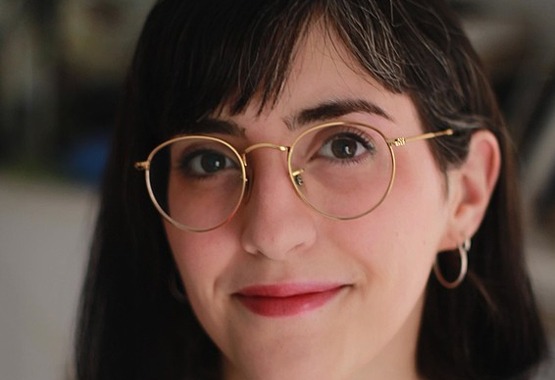
Brunella Tedesco-Barlocco
Pompeu Fabra University, Barcelona, Spain
About Brunella
Brunella Tedesco-Barlocco is currently writing her Ph.D. thesis on reboots, requels and revivals at Pompeu Fabra University, in Barcelona, Spain. She holds a bachelor’s degree in Journalism from ORT University (Montevideo, Uruguay), and an M.A. in Contemporary Film and Audiovisual Studies from Pompeu Fabra University. She is a doctoral fellow at the Communication Department, a member of the CINEMA Research Group of Pompeu Fabra University, and an editorial assistant of the academic journal Comparative Cinema. She has published articles in Adaptation, Communication & Society and El profesional de la información.
In November and December 2021, Brunella was on a research stay at the English Department of Leibniz University Hannover, with Prof. Dr. Kathleen Loock as her mentor.
You can find Brunella on Orcid, ResearchGate and Academia.
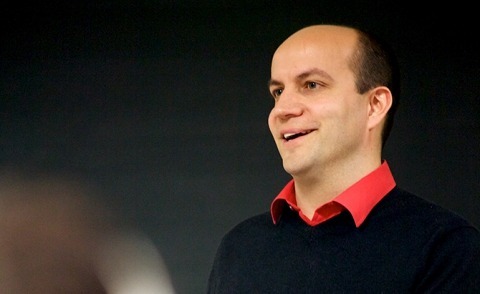
Jonathan Gray
University of Wisconsin, Madison, US
About Jonathan
Jonathan Gray is Hamel Family Distinguished Chair in Communication Arts and Professor Media and Cultural Studies at University of Wisconsin – Madison. His research interests generally focus on the points of contact between texts and audiences, and hence on lived textualities and on audience reception. Recent books include Dislike-Minded: Media, Audiences, and the Dynamics of Taste and Television Goes to the Movies (with Derek Johnson). He also edits International Journal of Cultural Studies, NYU Press’ Critical Cultural Communication series, and is an International Communication Association Fellow.
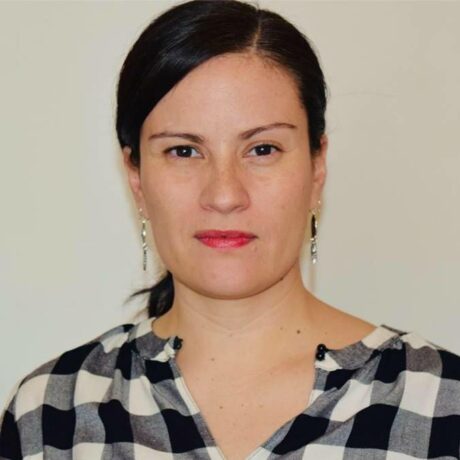
Fabiola Alcalá Anguiano
University of Guadalajara, Mexico
About Fabiola
Fabiola Alcalá Anguiano is a research professor in the Department of Social Communication Studies at the University of Guadalajara, Mexico. Her main lines of research are German cinema, documentary film and visual studies. She likes to reflect on cinema and to find in its images a way of understanding the world. She has written about filmmakers such as Werner Herzog, Harun Farocki, Christian Petzold, Agnès Varda, Angela Schanelec, among others.
In this project she will be in charge of applying the study in Mexico, a territory where the influence of U.S. cinema is extremely strong and has a direct impact on the construction of identities.
Here are some of her latest publications:
2022. Alcalá, Fabiola. Barcelona en el Cine, una metáforca en Construcción. El ojo que piensa. Número 24. http://www.elojoquepiensa.cucsh.udg.mx/index.php/elojoquepiensa/article/view/382
2021. Alcalá, Fabiola. Coyunturas éticas y estéticas en el cine documental contemporáneo. Testimonios sobre la guerra contra el narcotráfico en México. Miguel Hernández Communcation Journal, Vol 12 (1), pp. 105-118. Universidad Miguel Hernández, UMH (Elche-Alicante). https://revistas.innovacionumh.es/index.php/mhcj/article/view/940
2021. Alcalá, Fabiola. Las imágenes de Rostros y Lugares (2017). Una reflexión desde el documental performativo y los estudios visuales. Fotocinema. Revista cientifica De Cine Y fotografia, (22), pp. 331-349. https://revistas.uma.es/index.php/fotocinema/article/view/11728

Philippe Meers
University of Antwerp, Belgium
About Philippe
Philippe Meers is a Professor in Film and Media Studies at the University of Antwerp, Belgium, where leads the Visual and Digital Cultures Research Center (ViDi) and the Center for Mexican Studies. He has published widely on historical and contemporary film cultures and audiences. With Richard Maltby and Daniel Biltereyst, he co-edited Explorations in New Cinema History: Approaches and Case Studies (2011), Audiences, Cinema and Modernity: New Perspectives on European Cinema History (2012) and The Routledge Companion to New Cinema History (2019). His latest co-edited volume is Cinema in the Arab World: New Histories, New Approaches, with Ifdal Elsaket and Daniel Biltereyst (Bloomsbury, World Cinema series, 2023).He co-coordinates the Spanish language research network ‘Cultura de la Pantalla’.
Links to his projects:
www.cinemabelgica.be
www.cinemacitycultures.org (temporarily offline)
www.cineheritage.org
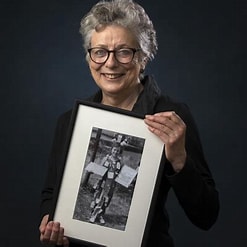
Annette Kuhn
Queen Mary University, London, UK (Emeritus)
About Annette
Annette Kuhn is Emeritus Professor in Film Studies at Queen Mary University of London, a Member of the European Academy, and a Fellow of the British Academy. She writes on film history, and on cultural memory in relation to photography and cinema. As Director of Cinema Culture in 1930s Britain and Co-Investigator of Cinema Memory and the Digital Archive – 1930s Britain & Beyond (lancaster.ac.uk) she has devoted several decades to investigating how audiences relate to and remember their past cinemagoing, introducing the concept of ‘cinema memory’ into the field.
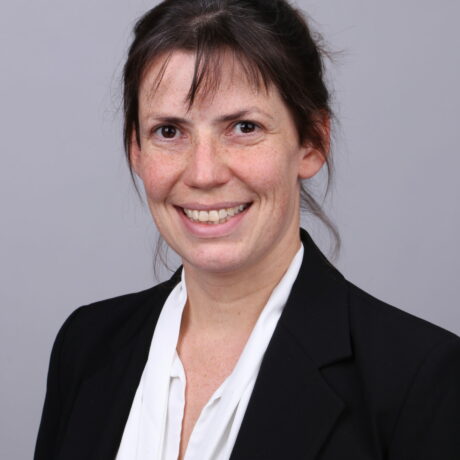
Christine Hämmerling
Zurich University, Zurich, Switzerland
About Christine
Christine Hämmerling, Dr., is a Senior Teaching and Research Assistant at the Department of Social Anthropology and Cultural Studies, Zurich University (since 2014). Her main research interests are social movements, trust and professionalization, trade and gift giving, ego documents (Das dokumentierte Ich, 2018), popular taste, reception of popular media & media theory (Sonntags, 20.15 Uhr: Tatort, 2016), the anthropology of space (Wissensmedien des Raums, 2020), cultural theory, and qualitative methods.
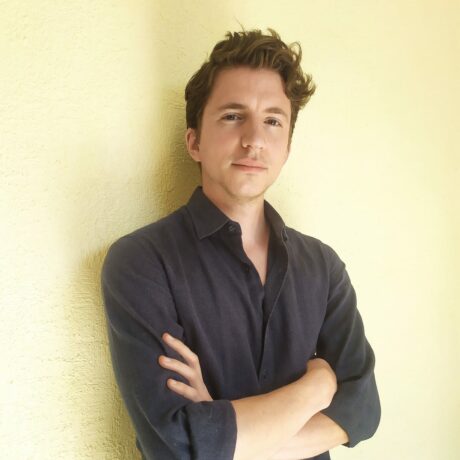
Nicolas Licata
National Autonomous University of Mexico (UNAM)
About Nicolas
Nicolas Licata holds a PhD in Languages, Literature and Translation Studies from the University of Liège, where he defended in 2020 a thesis on contemporary Argentine and Mexican literature, concerning the genre of autofiction, which can be defined as an autobiographical narrative in which the author deliberately introduces fictitious elements, in variable proportions and for a wide variety of possible reasons. His most recent articles on this subject were published in the journals Bulletin of Contemporary Hispanic Studies, Bulletin of Spanish Studies, Anales de Filología Francesa, as well as in the collective volume La invasión de los alter egos: Estudios sobre la autoficción y lo fantástico (Iberoamericana/Vervuert 2021), that he co-edited together with Rahel Teicher and Kristine Vanden Berghe. He is currently a postdoctoral fellow at the National Autonomous University of Mexico (UNAM) where he is furthering his research on Mexican autofiction of the twentieth and twenty-first centuries. Although he is primarily interested in literature, he is more generally passionate about the Mexican culture and society. Throughout his various travels and research, he has often been able to observe the deep traces left in this country by Hollywood films. Getting involved in this project is for him a way to broaden his understanding of Mexico and its connections with the rest of the world.
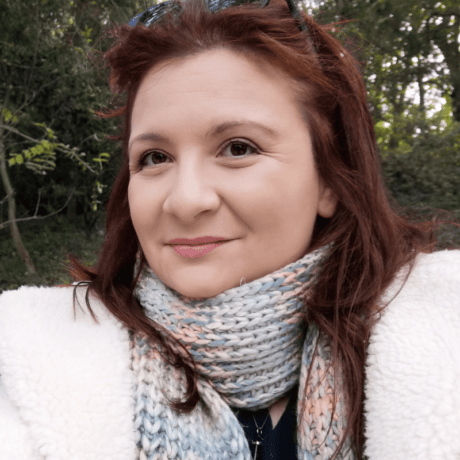
Maya Nedyalkova
Oxford Brookes University
About Maya
Maya Nedyalkova is a Research Fellow for the Creative Industries Research and Innovation Network at Oxford Brookes University, interested in popular culture and film/media audiences. She examined aspects of the transnational Bulgarian film industry during her PhD at the University of Southampton, which was funded by the UK Arts and Humanities Research Council. For her British Academy postdoctoral fellowship at Oxford Brookes, she explored Bulgarian film audiences’ memories of film-viewing in relation to current habits, practices and preferences. She co-edited two themed sections, titled “International Film Audiences”, for Participations Journal of Audience and Reception Studies and has published in journals (Open Screens and Studies in Eastern European Cinema) and edited volumes (The Palgrave Handbook of Comparative New Cinema Histories, Routledge Companion to European Cinema, Popular Music and the Moving Image in Eastern Europe, and Transformation Processes in Post-socialist Screen Media). A beta version of the website with the findings of her most recent project can be found here: https://bulgarianfilmaudiences.org/
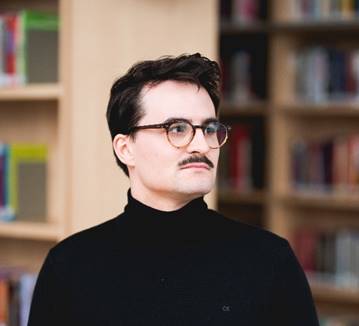
Eduard Cuelenaere
Ghent University, Ghent, Belgium
About Eduard
Eduard Cuelenaere holds a doctoral degree (PhD) in Communication Sciences (Ghent University) and in Theatre Studies and Intermediality (University of Antwerp). His research interests centre around the study of serialities (film remakes, reboots, sequels, …), transnational cinema, European (popular) cinema, and international communication. He has particular research expertise in Dutch-Flemish film remakes, Dutch and Belgian cinema, as well as in the relation between film and national identity.
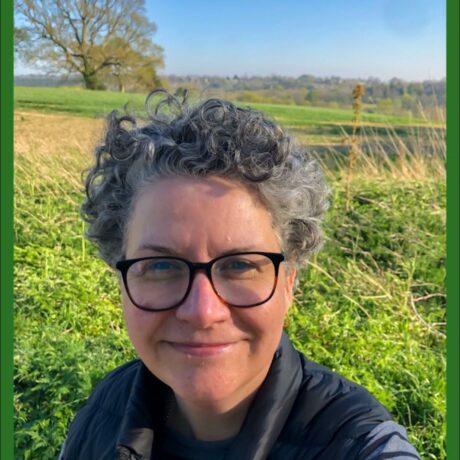
Catherine Grant
University of Reading, Reading, UK
About Catherine
Catherine Grant is Honorary Research Fellow at Birkbeck, University of London, and Senior Research Fellow at the University of Reading, UK. Since September 2022, she has been Honorary Professor at Aarhus Universitet, Denmark. She carries out her film and moving image studies research mostly in the form of remix-based video essays. She also runs the Film Studies For Free social media platforms, and is a founding co-editor of the award-winning peer-reviewed journal [in]Transition: Journal of Videographic Film and Moving Image Studies.
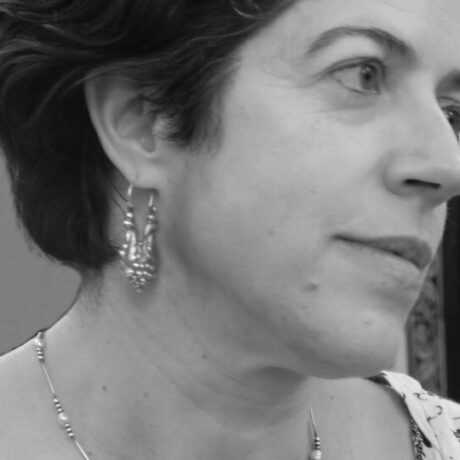
Ana Rosas Mantecón
Universidad Autónoma Metropolitana, Mexico
About Ana
Ana holds a PhD in Anthropology. She is a professor and researcher in the Universidad Autónoma Metropolitana’s Department of Anthropology, Mexico. Specialist in cinema, museum and heritage audiences, as well as cultural access policy. She has promoted the dialogue between theory and practice in cultural management through the participation in different international, national and regional programs dedicated to the professionalization of cultural mediators, applied research and audience development.
Here are some of her latest publications:
2017. “Going to the movies. Anthropolog of audiences, the city and the screens.” [Ir al cine. Antropología de los públicos, la ciudad y las pantallas].
2020. “Latin American Cinema in Circulation. Searching for the lost audience.” [Cines latinoamericanos en circulación. En busca del público perdido], with Leandro González. Awarded the Fundación del Nuevo Cine Latinoamericano Essay Prize.
2021. “Ibero-American audiences of Golden Age Mexican Cinema. Analog and digital trajectories of a shared identity.” [Públicos iberoamericanos del cine mexicano de la Época de oro. Trayectorias analógicas y digitales de una identidad compartida], with Juan Carlos Domínguez Domingo.
2023. “Memory’s chiaroscuro. Cinematographic culture and urban worlds.” [Claroscuros de la memoria. Culturas cinematográficas y mundos urbanos], with Antonio Zirión Pérez.
Former project members

Lida Shams-Mostofi
Student Assistant
Lida Shams-Mostofi
Lida Shams-Mostofi is a student assistant in the HOLLYWOOD MEMORIES project. She holds a Bachelor’s degree in the interdisciplinary Bachelor’s program “Lehramt an Gymnasien” with English as first subject and History as second subject from Leibniz Universität Hannover. Currently, she is studying in the Master’s program Advanced Anglophone Studies and English and History at the Gymnasium level at LUH. Lida is particularly interested in research in the fields of Critical Race, Intersectional and Trauma Studies with a special focus on their representation in pop cultural films and series.
Role in the project
As a student assistant, Lida assists the work of Prof. Dr. Kathleen Loock. This includes, among other things, support in the creation of the questionnaire for the HOLLYWOOD MEMORIES project, the preparation and implementation of conferences or the web presence within Leibniz University.
This is what Lida says about one of her movie experiences:
To this day, I can’t watch movies that are scary. As a child, however, my tolerance for what I considered “horror” was enormously low. I remember going to the movies with my father, at my request, to see INKHEART. I must have been 11. Although I was really looking forward to the movie, a few minutes after it started, I asked my father to take me out again because the movie was too scary for me. I think the mythical creatures had scared me. So we went again. A week later, we took my school class on a trip to the movies, which we were all looking forward to, of course. My joy ended quickly, though, because we went to see INKHEART … Even before it started, I was panicked, but I was too embarrassed to say so in front of the others. So I sat obediently in the cinema and squeezed my eyes shut inconspicuously during the opening scenes, which had already frightened me the last time. After I dared to look again normally, but I was very captivated by the plot and liked the film very much. Some scenes I found creepy even there, but in the end I was very proud of myself for having survived and even liked the film.
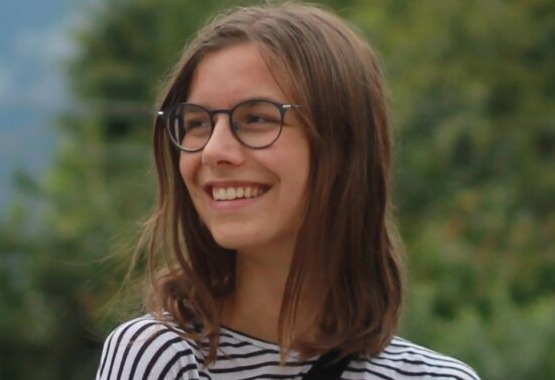
Alissa Lienhard
Student Assistant
Alissa Lienhard
Alissa Lienhard is a student assistant in the HOLLYWOOD MEMORIES project. She holds a Bachelor’s degree in the interdisciplinary Bachelor with English as first subject and Biology as second subject from Leibniz Universität Hannover (LUH). She is currently studying in the Advanced Anglophone Studies master’s program at LUH. Alissa is particularly interested in research related to films, series, science fiction, feminism, and gender/queer studies.
Role in the project
Alissa helps with the collection and analysis of data and with the preparation of events, conferences and workshops. She also maintains the HOLLYWOOD MEMORIES web presence on the pages of the English Department at Leibniz Universität Hannover.
This is what Alissa says about one of her most memorable movie experiences
My little brother and I (10 and 12 years old) saw a trailer for TRON: LEGACY in 2010 and wanted to go to the movies right away. However, our father insisted on watching the 1982 “original film” with us beforehand. And because that took longer, the movie wasn’t playing in Hannover when we were finally ready. So the three of us took the regional express from Hanover to Bremen, just to see TRON: LEGACY in the cinema there. That was one of the best family trips my father ever took us on.
Register now to participate in the HOLLYWOOD MEMORIES project!
You want to be part of the project and share your memories of Hollywood movies with us? Then register here to participate. We will let you know when the questionnaire is launched on our digital research platform.